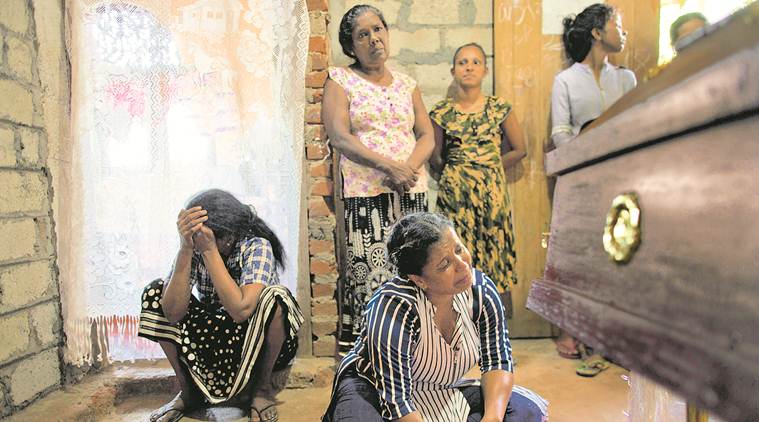
Urdu Times on April 23 has an editorial titled Shak ki Sui, or the ‘Needle of suspicion’. It writes that whatever happened on Easter in Sri Lanka is so horrific that all will condemn it. “How can any defend this terror or tolerate the loss of innocent lives?” It evokes the recent killings in two mosques in New Zealand where worshippers were victimised. The editorial is of the view that the difference lies in the terrorist in New Zealand identifying himself, trying to telecast the whole thing and whip up hate. In Sri Lanka, (the editorial was published before the perpetrators started getting identified) there is no clear identification so far. But, it says “what is clear is that an attempt was made to get maximum victims, and in this matter, the needle of suspicion points to certain Muslim groups”.
Rozanama Rashtriya Sahara, on the same day, has an editorial titled “Ajab nahi ki yeh tanhaaiyaan phi gal jaayein” — no surprise if isolated places like these get hit, referring to poet Sahir Ludhianvi’s work Parchhayiyaan, which calls for the blood of innocents not to be spilt and the need to raise one’s voice against such barbarity. The editorial starts by saying that “this time it is not India, Pakistan, Paris, Australia or New Zealand. Terrorists attacked Sri Lanka. On Easter, churches and five star hotels were attacked and more than 300 persons died. So who were those who died?” The editorial then invokes Sadat Hasan Manto to say we should not say that so many Hindus or Muslims were killed, but say so many human beings have died. The blasts were heard not only in Sri Lanka but around the world. “the question is, who gains by spilling the blood of innocents?”
Terror and polls
Inquilab, on April 22, has an editorial titled ‘The bid to turn India into Pakistan’. Speaking of the candidature of Pragya Thakur, an accused in the Malegaon terror attack, the newspaper writes that she has not been acquitted but is out on bail in the matter. The move to make her a candidate by the ruling party is an “attempt to push India wilfully down the path of Pakistan”.
On the previous day as well, Inquilab had, in its editorial, mentioned the need for the BJP to clarify which side of the terror question it was on after their choice of candidate for the Bhopal constituency. The expression of anger was especially directed at Thakur’s terming Hemant Karkare (the Maharashtra ATS chief who died in the line of duty during the 26/11 attacks) a traitor. “The BJP must clarify whether it is against terrorism or with those accused of terrorist activity. Because both things cannot go together. How can the BJP, which took credit for the ‘watan wapasi’ of Wing Commander Abhinandan, stay silent at this insult to Karkare,” the editorial asks.
Court’s credibility
Akhbar e Mashriq, on April 24, has an editorial on how the “Chief Justice of India (CJI) must face the law”. The editorial writes that the Supreme Court, the last resort of the “fariyadi”, is in the dock. It says that “the CJI’s statement that the complaint is meant to upset the credibility of the Court is a weak plea”. The editorial goes onto say that “all are equal under the law and if a woman has accused the CJI of sexual harassment, he must be treated as a common citizen… This would be exemplary and his stature would rise.”
Mere Watan, on April 23, takes a different view with an editorial titled, ‘The Indian judiciary is in danger’. It says that “after the BJP got elected to office, all aspects of life in India were threatened. And now, this. About 125 crore Indians trust just the judiciary and if faith in that institution is weakened” then much is lost. It concludes by saying that if after accusations like this, even the sole source of trust for so many Indians comes under a cloud, “our future will be in danger”.
EVM questions
Munsif, on April 16, says that it is tough for the Election Commission to reconcile competing demands of so many Opposition parties in a country like India. But if all the Opposition parties are saying the same thing — questioning the EVMs — they must take heed and be transparent and fair.
Inquilab on the same day says that sidelining the concern over EVMs by 21 parties means being indifferent to the 70 per cent of Indians that they represent. That is why the parties “have knocked at the doors of the Supreme Court again”.
Compiled by Seema Chishti